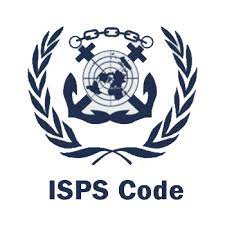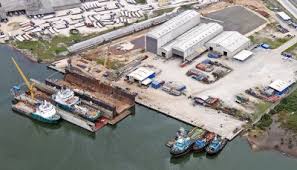 Esther Oritse
Esther Oritse
Lagos — In a bid to strengthen the security of Nigeria’s maritime industry, the Nigerian Ports Authority (NPA) has emphasized the need to review the implementation of the International Ship and Port Facility Security (ISPS) Code.
Speaking at the ongoing 2024 Conference of the Port Facility Security Officer Forum of Nigeria, PFSON, Managing Director of NPA, Dr. Abubakar Dantsoho highlighted that reviewing the ISPS Code’s implementation would ensure Nigeria’s ports and shipping lanes remain secure, resilient, and capable of meeting the demands of the modern global maritime industry.
He stressed that this review would enable Nigeria to develop proactive and innovative strategies for a safer maritime environment.
Reflecting on the significance of maritime security, Dr. Dantsoho stated: “Over the past two decades, we have witnessed the critical role maritime security plays in facilitating international trade, protecting national interests, and safeguarding the lives of seafarers, port workers, and the environment. The ISPS Code, introduced in 2004, has been instrumental in addressing emerging security threats in the maritime sector. For Nigeria, it was a clarion call to establish robust systems and frameworks to secure our ports and elevate our status as a safe and reliable maritime hub in Africa.”
He noted that prior to the introduction of the ISPS Code, the global maritime industry faced escalating challenges, including terrorism, piracy, and illicit trafficking. Recognizing these threats, the NPA prioritized alignment with international security standards, ensuring rigorous implementation of the ISPS Code.
The NPA boss outlined several key advancements made by the NPA, including upgrades to port facilities following the adoption of the landlord model, the integration of advanced security technologies, and significant investments in training security personnel. These measures, he said, have not only ensured compliance but have also positioned Nigeria as a proactive player in countering emerging threats.
Acknowledging the collaborative efforts behind these achievements, Dantsoho stated: “Our progress is the result of the dedication of a broad range of stakeholders, including federal and state agencies, port facility operators, security services, and international partners. Together, we have ensured that Nigeria remains a trusted and secure player in the global shipping industry.”
As the maritime industry continues to evolve, Dr. Dantsoho emphasized the importance of sustained commitment to implementing and enhancing the ISPS Code.
He explained that this effort is not just a regulatory requirement but a responsibility to Nigeria’s citizens, economy, and the global maritime community.
“As we commemorate this milestone, let us recognize that the work we do today will shape the future of maritime security for generations to come.” He stated



